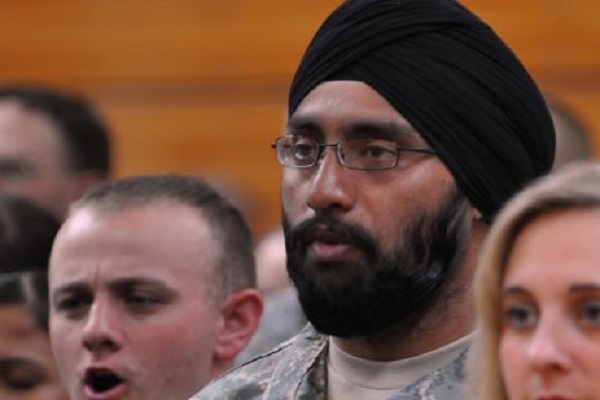
U.S. Army Allows Sikh Officer to Wear Beard and Turban
- By Nathan Glover --
- 16 Dec 2015 --

U.S. Army allows faith requirements for Sikh Captain.
On December 9, 2015, the U.S. Army has granted a temporary appearance waiver to Capt. Simratpal Singh. This very rare religious accommodation will allow the Army Captain to wear his long beard and turban as part of the traditions of the Sikh religion which he actively practices. The temporary waiver is only effective for a month or until January 8 and the Army’s Manpower Assistant Secretary Debra S. Wada will still determine whether a permanent waiver shall be granted or not.
U.S. Army Allows Sikh Officer to Wear Beard and Turban[/tweetthis]
Although the United States Military have softened its rules in recent years by allowing gays and lesbians to join the military and serve the country, it remained strict when it comes to the implementation of health and appearance standards. And this includes the need for all cadets and serving military personnel to cut their hair short and shave their beards. Singh initially shaved his beard and cut his hair when he entered West Point about 10 years ago. Only this fall during his leave that he started growing his hair and beard back again.
In his letter to the Army officers requesting for exemption from the beard and long hair ban, Singh expressed his dilemma of choosing between following his religion and serving the country. In his letter he writes: “I am deeply, deeply grateful for all the opportunities that the Army has given me – and I hope to serve a long and honorable career with the Army. However, I have come to an impasse with respect to my conscience. I must move forward in my life while abiding by the tenets of the Sikh faith by maintaining unshorn hair and beard, and wearing a turban.”
Capt. Singh sought the assistance of the advocacy group Sikh Coalition when he filed his religious accommodation request. And after receiving a positive decision, Singh can’t help but express his happiness “It is wonderful. I had been living a double life, wearing a turban only at home. My two worlds have finally come back together.”
Eric Baxter of the non-profit law firm Becket Fund which promotes religious liberty has said that this latest Army decision will eventually become a precedent-setting case. If such accommodation was granted to an individual of a particular religion, then it should be applied to others as well.
Sikhs r ok. But conformity makes our Mil a Powerful Organism:
US Army Makes Decision re Ban on Sikh…
https://t.co/oRffpwLof0
— Miles Alexander (@critical911) December 15, 2015
One of the core beliefs of the Sikh religion is the duty to resist against oppression. And one of the symbolisms of doing so is for members to leave their hair and beard uncut. Additionally, joining and serving the military is regarded as one of the most honorable careers for Sikhs. This was witnessed when Sikhs occupied almost half of the Indian Army population after its independence in 1947.
There have been Sikhs who served the U.S. military and they were most active during World Wars I and II, the Korean and the Vietnam War. The interest among Sikhs to join the military only dwindled when the military imposed a ban on long hair and beard among its personnel since 1981. In 2014, the Pentagon softened this policy by allowing accommodations but only for compelling religious or health concerns.
Hundreds of military personnel have been requesting for said accommodation but Capt. Singh is only the fourth individual to be granted of such waiver since 1981. But he is also considered the first case when it comes to active-duty combat soldiers because the first three individuals who were granted exemption in 2009 were assigned to the non-combat medical fields. The military has always stood firm to its beard and hair rule arguing that exceptions may “threaten the very foundations of military order and discipline.”
@DonFowlerIII the idea is for EVERYONE to be UNIFORM. https://t.co/evWbWWebYy
— Don Fowler (@DonFowlerIII) December 14, 2015




















